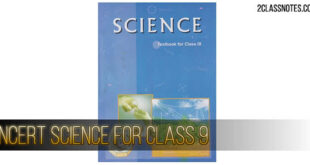Question: Which of these do you think uses less electrical energy—electric bulb or LED?
Answer: LED uses less electrical energy.
Question: Mercury is a liquid and conducts electricity. Do you think it is an electrolyte?
Answer: Mercury is a metal which is liquid at room temperature. It consists of mercury atoms and no ions are present. Hence it is not an electrolyte.
Question: Solid copper sulphate does not conduct electricity, but when it is dissolved in water, it does conduct electricity. Why?
Answer: Solid copper sulphate does not contain any free electrons or ions to conduct electricity. When it is dissolved in water it breaks up into ions that can conduct electricity.
Question: Copper conducts electricity through electrons, whereas salt solution conducts electricity through ions. Do you agree?
Answer: Yes, I agree with this statement that copper conducts electricity through electrons, whereas salt solution conducts electricity through ions.
Question: Why should you not touch electrical appliances with wet hands?
Answer: As water is a good conductor of electricity we should not touch electrical appliances with wet hands. Our body may get electric shock.
Question: After doing Activity 5 (electroplating a spoon with copper), a student interchanged the connections of the copper plate and the spoon. What do you think will happen now?
Answer: If after electroplating a spoon with copper, the connections of the copper plate and the spoon are interchanged, the copper deposited on the spoon will start disappearing and going into solution.
Question: We should not try to put out a fire in an electrical appliance by pouring water on it. Why?
Answer: Putting out a fire in an electrical appliance by pouring water on it can be dangerous as water conducts electricity and people who come in contact with the water can get electric shocks.
Question: Instead of taking the trouble of electroplating metals with chromium for making car parts, taps, cycle parts, etc., why are these objects not made of chromium itself?
Answer: Chromium is very expensive. So the objects like car parts, taps, cycle parts, etc. will not be affordable if made of chromium entirely.
Question: Which of the following liquids conduct electricity & which do not conduct electricity? Lemon juice, Milk, Vinegar, Salt solution, Distilled water, Honey, Sea water, Rain
water.
Answer: Conducting: Lemon juice, Vinegar, Salt solution, sea water, Rain water
Non Conducting: Milk, Distilled water, Honey.
Question: What is advantage of using LED over bulb in testing the electrical conductivity of liquids?
Answer: When electric current flows through a bulb then due to heating effect of current, the filament of the bulb gets heated up to a high temperature & it starts glowing. Now for a liquids having low electrical conductivity, the current flowing through the circuit is very weak due to which the filament does not get heated sufficiently & hence the bulb does not glow. Therefore LED is used in place of bulb because LED glows even when weak electric current flows in the circuit.
Question: Which effect of electric current is utilized for detecting the flow of current through a solution: a) When a torch bulb is used? b) When a magnetic compass is used?
Answer: a) Heating effect b) Magnetic effect.
Question: Distilled water does not conduct electricity. What substances can be added to distilled water in small amounts to make it a good conductor of electricity?
Answer: Salt, acid & base.
 Class Notes NCERT Solutions for CBSE Students
Class Notes NCERT Solutions for CBSE Students




Can be more informative!